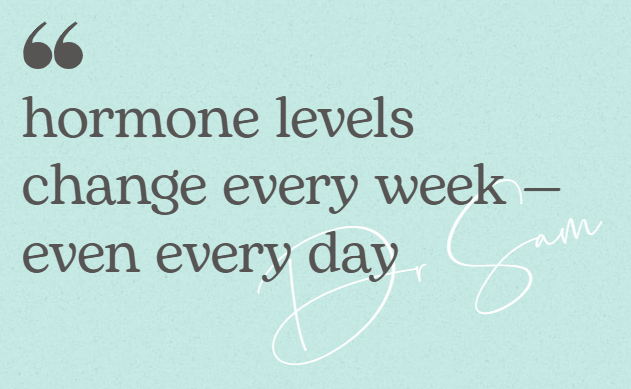Gathering information - your story
🧬 Why Your Investigations Matter in Midlife and Hormone Healt h
Hormones Aren’t Always the Star of the Show
When we talk about blood tests during perimenopause or midlife, many people assume it’s all about hormones. But the truth is:
"For most women, hormone levels change every week — even every day — and a single blood test doesn’t give the full picture."
That’s why we often focus on what else is going on. Instead of looking for a magic hormone number, we use investigations to understand your inflammation levels, metabolic health, nutrient status, and how your body is coping with stress or load. These things can give us crucial insight into what’s driving your symptoms — and how we can support you.
Red Numbers Aren’t Always Bad News
It can feel alarming when you see a test result “in red” — flagged as outside the normal range. But not all red flags are created equal.
"The most important thing is not just that a result is 'abnormal,' but how concerning it really is — and what we do next."
Some results are perfectly explainable in context. Others need a deeper look. Helping you understand that difference is one of the most important things I do — and something I genuinely enjoy.
Real Life Examples: Why Context Matters
Putting your results in context is where the magic happens.
Here are two examples:
- A patient comes in with heavy periods and fatigue. Her haemoglobin and iron are low — which completely explains how she’s feeling and gives us a clear direction.
- Another patient is exercising a lot but not fuelling properly. Her thyroid is suppressed, and her iron is raised compared to previous levels — likely from inflammation post-exercise. Those results might seem concerning at first glance, but when we take everything into account, they actually make sense.
"When we connect the dots, the picture gets clearer — and more empowering."
Blood Tests Are Just One Piece of the Puzzle
While investigations can be incredibly helpful, they’re not everything.
" Bloods don’t tell the whole story — they help us assess risk and make sense of symptoms, but they don’t replace clinical thinking."
Say someone has ongoing gut symptoms. A low ferritin might point to internal bleeding, but a normal ferritin doesn’t guarantee everything’s fine — especially if there are other red flags in the mix. That’s why it’s never just about the numbers.
You’re at the Centre
Every person is different. Your results need to be understood in the context of:
- Where you’re at in your journey
- What symptoms are affecting you
- What’s most important to you
"I take real pleasure in helping you understand your results and use that knowledge to move forward — with clarity, confidence, and care."
Whether it’s navigating brain fog, low energy, poor sleep, or ongoing fatigue, your blood tests can help us validate your experience, make sense of what’s happening, and guide meaningful, realistic next steps.
More about investigations
How we work together
We look at patterns over time, not just snapshots. Especially with hormone-related issues, one reading doesn’t define the whole picture — but it can give clues. And you’ll never be left in the dark wondering what something means. This means that one appointment is generally not enough
Learn more in our course
Hormones like FSH, estrogen, and progesterone fluctuate throughout the menstrual cycle, with levels changing from day to day. This constant fluctuation makes it important to consider trends and symptoms, rather than relying on a single hormone test result. Understanding this can help us make a personalised plan. But, no worries if a self-directed approach isn't for you. Through our patient portal I will be sharing my thoughts on your results anyway and you can have as many Confidence Calls as you need
More than 'just bloods'
For example, high creatinine levels might indicate a loss of muscle bulk because you haven't been training, or low vitamin D could be a result of not taking your supplements, not being able to afford them, or not getting outside due to your busy schedule. These aren’t issues that can be fixed by simply writing a prescription, but instead, they require a broader understanding of your lifestyle and challenges. Lab results alone don’t tell the full story — they give us clues, but it's the conversation we have together that uncovers what’s really going on. And often, the best way forward involves a combination of lifestyle changes, support, and practical solutions, rather than just a prescription.
Rome wasn't built in a day
If your blood work comes back 'bad' or 'not perfect,' it’s important to set realistic goals. For example, if you’re prediabetic or on the brink, but haven’t been sleeping due to depression or night sweats, be kind to yourself. This is just a snapshot — a window into how you can start helping yourself. Once you can improve your sleep, you’ll have the energy and clarity to focus on the next steps for feeling better, instead of trying to tackle everything at once.





